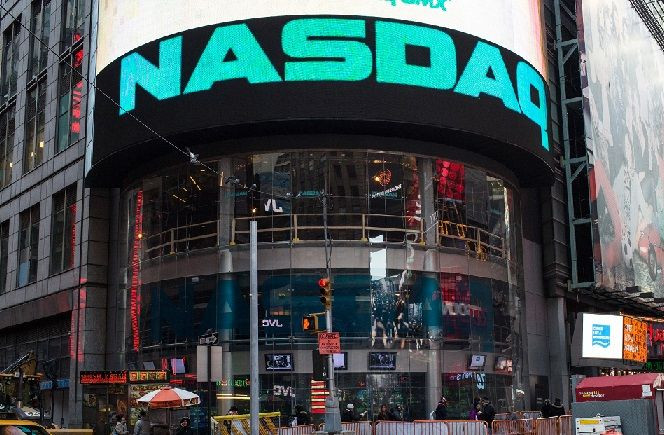Apple, Google And Microsoft Earnings Will Be Positive Despite Fears From Nasdaq's Recent Fall

From a brief glance at the tech-heavy Nasdaq, which plunged more than 8 percent last week, one could get the sense that a long-discussed end to a supposed bubble in technology stocks is underway.
But a longer look may dispel that sentiment: Though a sharp pullback in high-profile social media companies including Facebook Inc (NASDAQ:FB) and Twitter Inc (NYSE:TWTR) contributed to the broader Nasdaq drop, more established players like Apple Inc. (NASDAQ:AAPL), Google Inc (NASDAQ:GOOG) and Microsoft Corporation (NASDAQ:MSFT) closed near their 2014 highs, suggesting the market is comfortable with their valuations ahead of upcoming quarterly earnings reports.
“This hasn’t been as dramatic a sell-off as some would have you believe except in the corners of the technology universe, like certain social media stocks,” Scott Kessler, head of technology equity research at S&P Capital IQ, said.
A flood of recent IPO is likely weighing on the Nasdaq’s performance, too.
In 2013 more than 200 companies went public compared to 2012’s 128. To date this year 89 IPOs have occurred and at that rate 2014 could see 300 deals.
Google reports earnings on Wednesday after the market closes and is the first of the big tech companies to weigh in with results.
According to analysis by estimate tracking firm Estimize.com, “Google is a notoriously difficult company to estimate earnings on. The search and technology giant aggressively spends cash and reinvests it into new and often secret company products.”
That said, last week’s price action in its shares amid the broader sector decline suggest investors are confident the firm will continue to produce earnings growth.
“Throughout the past two quarters Google has reported better advertising sales than expected and on Wednesday Estimize contributors expect Google to beat the Street’s consensus on revenue while also holding onto enough to cash to beat projections on EPS as well,” Estimize.com analysts said.
Yahoo Inc. (NASDAQ:YHOO), another Internet veteran, was set to release its quarterly results Tuesday. The report was expected to reflect the firm’s 21 percent stake in China’s e-commerce site Alibaba, which is expected to go public later this year in a move expected to value the company at about $100 billion.
“CEO Marissa Mayer continues to put pieces in place to capitalize on the windfall of cash Yahoo is expected to have after Alibaba goes public. This quarter the Estimize community expects Yahoo to beat the Street’s consensus on the top and bottom line,” Estimize.com reported this week.
Last Thursday was Nasdaq’s worst performance of the recent sell-off. On that day the index fell 129 points, just two days after reports surfaced of the Heartbleed security flaw that compromises secure passwords and other sensitive information across the Internet.
The flaw sent companies and customers scrambling to protect private information they may have submitted online. Though the panic is real, it likely won’t affect the stock market or earnings this quarter, according to the firms.
Network equipment manufacturer Cisco Systems, Inc. (NASDAQ:CSCO) directs much of the data traffic across the Internet and has emerged as one of the most vocal firms since the bug appeared. On April 9 Cisco said that its products might be vulnerable, and the company pledged to keep customers up to date.
Cisco’s said last week that 81 of its products use OpenSSL, the security protocol targeted by Heartbleed, and those products could have been compromised over recent years.
It’s not the best news to be sure, but, Kessler added, “Many, many companies and their offerings have been affected, but I would think that Cisco is as best-positioned as anyone to deal with this type of issue. I feel like there’s been a lot made of the existence of this bug and its potential but I have not seen much indicating that there has been considerable damage done.”
Networking vendor Juniper Networks, Inc. (NYSE:JNPR), also had problems with the bug, but has been working “around the clock” to fix it.
“This has been a customer support-focused effort and every Juniper product affected by the Heartbleed vulnerability now has a fix available except for older versions of our Unified Access Control, which we expect to provide a patch for shortly,” Juniper representative Cindy Ta wrote in an email to International Business Times. She added that the company couldn’t comment on whether the bug would impact earnings.
Analysts expect revenue of $1.15 billion when the company reports its first-quarter earnings on April 22, up slightly from $1.06 billion from the same quarter last year, with adjusted earnings per share of 29 cents, up from 24 cents, according to a survey of analysts by Thomson Reuters.
Shares of search giant Google represent 5 percent of the Nasdaq market capitalization and have been slowing a bit, with its Class A shares falling 12 percent since March 1.
Though Google originally announced that “we fixed this bug early and Google users do not need to change their passwords,” on Monday they revealed that some Android phones were affected, and that “patching information for Android 4.1.1 is being distributed to Android partners.”
However, it’s unlikely its earnings will be affected. Kessler said the larger companies will always be seen as more stable, despite the virus and Nasdaq tumble.
© Copyright IBTimes 2024. All rights reserved.






















